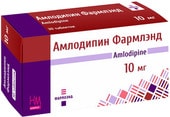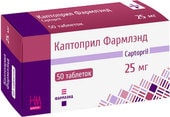-
×
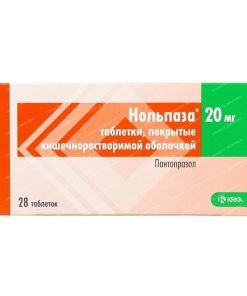 Nolpaza enteric tablets 20mg №14x2
1 × $19.00
Nolpaza enteric tablets 20mg №14x2
1 × $19.00 -
×
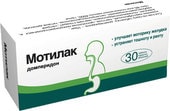 VeroPharm Motilak, 10 mg, 30 tablets
1 × $19.00
VeroPharm Motilak, 10 mg, 30 tablets
1 × $19.00 -
×
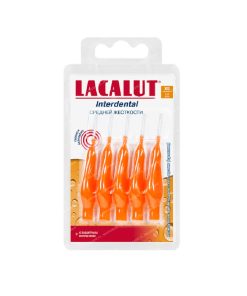 Lacalut interdental cylindrical brush (brushes) "INTERDENTAL" XS (2mm) №5
1 × $19.00
Lacalut interdental cylindrical brush (brushes) "INTERDENTAL" XS (2mm) №5
1 × $19.00 -
×
 BAA Doppelgerz Active Vitamin D 1000 ME tablets №30
1 × $39.00
BAA Doppelgerz Active Vitamin D 1000 ME tablets №30
1 × $39.00 -
×
 Oral-B Pro-Expert Stages Toothbrush (Children 8+), 1 pc
1 × $19.00
Oral-B Pro-Expert Stages Toothbrush (Children 8+), 1 pc
1 × $19.00 -
×
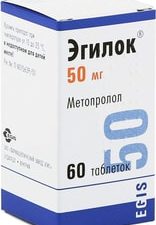 Egis Egiloc, 50 mg, 60 tablets
2 × $29.00
Egis Egiloc, 50 mg, 60 tablets
2 × $29.00 -
×
 Activated charcoal - UBF tablets 250mg №10x5
1 × $9.00
Activated charcoal - UBF tablets 250mg №10x5
1 × $9.00 -
×
 Belmedpreparaty Hawthorn-Belmed tincture, 50 ml.
1 × $9.00
Belmedpreparaty Hawthorn-Belmed tincture, 50 ml.
1 × $9.00 -
×
 TePe Toothbrush (for implants, braces)
2 × $19.00
TePe Toothbrush (for implants, braces)
2 × $19.00 -
×
 Rompharm Cataract drops, 0.015%, 15 ml.
1 × $39.00
Rompharm Cataract drops, 0.015%, 15 ml.
1 × $39.00 -
×
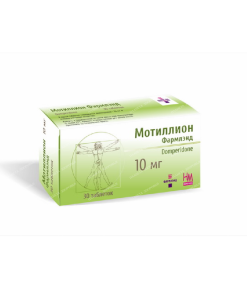 Motillion Pharmland tablets 10mg №10x3
1 × $19.00
Motillion Pharmland tablets 10mg №10x3
1 × $19.00 -
×
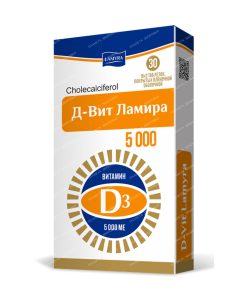 D-Vit Lamira tablets p/o 5000 IU № 15x2
1 × $39.00
D-Vit Lamira tablets p/o 5000 IU № 15x2
1 × $39.00 -
×
 Vitamin D3 600 IU, dietary supplement capsules №60 (Vitamin D3)
1 × $59.00
Vitamin D3 600 IU, dietary supplement capsules №60 (Vitamin D3)
1 × $59.00 -
×
 Sandoz lisirazide, 10 mg / 12.5 mg, 30 tab.
1 × $29.00
Sandoz lisirazide, 10 mg / 12.5 mg, 30 tab.
1 × $29.00 -
×
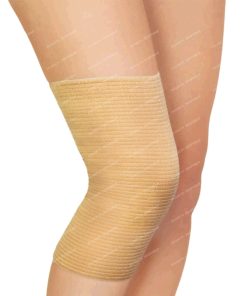 Elastic knee pad size 2 model 0802
1 × $19.00
Elastic knee pad size 2 model 0802
1 × $19.00 -
×
 Medical compression tights m.5002 IIkl.k. size 5 (XL) height 1 beige
1 × $69.00
Medical compression tights m.5002 IIkl.k. size 5 (XL) height 1 beige
1 × $69.00 -
×
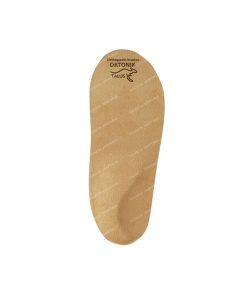 Orthopedic insoles for children art. 03 R-1 p.16 medical-prof.
1 × $19.00
Orthopedic insoles for children art. 03 R-1 p.16 medical-prof.
1 × $19.00 -
×
 Medical compression tights m.5002 IIkl.k. size 3 (M) height 1 beige
1 × $69.00
Medical compression tights m.5002 IIkl.k. size 3 (M) height 1 beige
1 × $69.00 -
×
 Farmland Glucose solution, 50 mg / ml, 500 ml.
1 × $9.00
Farmland Glucose solution, 50 mg / ml, 500 ml.
1 × $9.00 -
×
 Health Raunatin-Health, 2 mg, 20 tablets.
2 × $9.00
Health Raunatin-Health, 2 mg, 20 tablets.
2 × $9.00 -
×
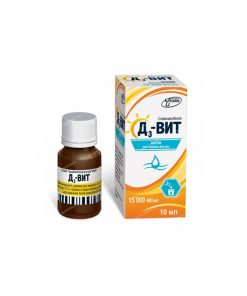 D3-VIT drops for oral administration 15000 IU/ml 10ml №1
1 × $19.00
D3-VIT drops for oral administration 15000 IU/ml 10ml №1
1 × $19.00 -
×
 Gedeon Richter Diroton, 20 mg, 28 tab.
1 × $39.00
Gedeon Richter Diroton, 20 mg, 28 tab.
1 × $39.00 -
×
 Health Anaprilin-Health, 40 mg, 50 tablets.
1 × $9.00
Health Anaprilin-Health, 40 mg, 50 tablets.
1 × $9.00 -
×
 Grindex Bisacodyl Grindex, 5 mg, 40 tab.
1 × $9.00
Grindex Bisacodyl Grindex, 5 mg, 40 tab.
1 × $9.00 -
×
 Omeprez capsules 20mg №10x3
1 × $19.00
Omeprez capsules 20mg №10x3
1 × $19.00 -
×
 Borimed Aspicard, 75 mg, 50 tablets
1 × $9.00
Borimed Aspicard, 75 mg, 50 tablets
1 × $9.00 -
×
 GUM toothbrush POST-OPERATION 317
1 × $19.00
GUM toothbrush POST-OPERATION 317
1 × $19.00 -
×
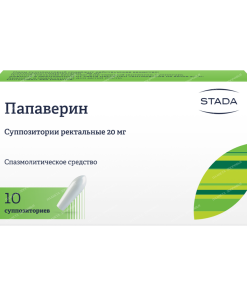 Papaverine rectal suppositories 20mg №5x2
1 × $19.00
Papaverine rectal suppositories 20mg №5x2
1 × $19.00 -
×
 Madaus Repar Gel H 40 g
1 × $39.00
Madaus Repar Gel H 40 g
1 × $39.00 -
×
 Berlin-Chemie Menarini Burlipril 10, 10 mg, 30 tablets
3 × $19.00
Berlin-Chemie Menarini Burlipril 10, 10 mg, 30 tablets
3 × $19.00 -
×
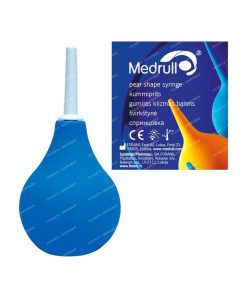 Medrull syringe type B with solid tip B-1 volume 30ml
1 × $9.00
Medrull syringe type B with solid tip B-1 volume 30ml
1 × $9.00 -
×
 Medical compression tights m.5002 2 class. size 3 (M) height 2 beige
1 × $69.00
Medical compression tights m.5002 2 class. size 3 (M) height 2 beige
1 × $69.00 -
×
 Syringe two-component BD Discardit II 2 ml with a needle 23G x 1 1/4
2 × $9.00
Syringe two-component BD Discardit II 2 ml with a needle 23G x 1 1/4
2 × $9.00 -
×
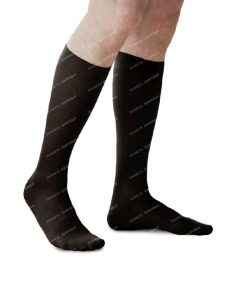 Medical compression stockings below the knee with a toe m.3002 1 class. R.4 (L) height1 black
1 × $39.00
Medical compression stockings below the knee with a toe m.3002 1 class. R.4 (L) height1 black
1 × $39.00 -
×
 Seni Soft Disposable diapers (absorbent) 60*60 cm, 5 pcs
1 × $19.00
Seni Soft Disposable diapers (absorbent) 60*60 cm, 5 pcs
1 × $19.00 -
×
 Oclean W10 Irrigation Tips (2 Pack) - Pink
1 × $49.00
Oclean W10 Irrigation Tips (2 Pack) - Pink
1 × $49.00 -
×
 Seni soft Basic Disposable diapers (absorbent) 90x60 10 pcs
1 × $29.00
Seni soft Basic Disposable diapers (absorbent) 90x60 10 pcs
1 × $29.00 -
×
 SENI LADY extra Urological pads 15 pcs
1 × $19.00
SENI LADY extra Urological pads 15 pcs
1 × $19.00 -
×
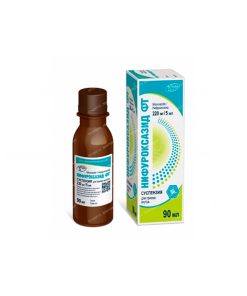 Nifuroxazide FT suspension for internal use 220mg/5ml in 90ml bottles in package No. 1
1 × $19.00
Nifuroxazide FT suspension for internal use 220mg/5ml in 90ml bottles in package No. 1
1 × $19.00 -
×
 Farmland Glucose solution, 50 mg / ml, 100 ml.
1 × $9.00
Farmland Glucose solution, 50 mg / ml, 100 ml.
1 × $9.00 -
×
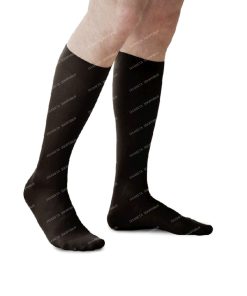 Medical compression stockings below the knee with a toe m.3002 2 class. R.5 (XL) height1 black
1 × $39.00
Medical compression stockings below the knee with a toe m.3002 2 class. R.5 (XL) height1 black
1 × $39.00 -
×
 SENI LADY normal Urological pads 20 pcs
1 × $19.00
SENI LADY normal Urological pads 20 pcs
1 × $19.00 -
×
 TePe Toothbrush (Denture Brush for Removable Dentures)
1 × $19.00
TePe Toothbrush (Denture Brush for Removable Dentures)
1 × $19.00 -
×
 Beige Compression Stockings, Class 3 Compression
1 × $59.00
Beige Compression Stockings, Class 3 Compression
1 × $59.00 -
×
 Ternofarm Eskuven-Ternofarm gel, 1%, 50 g.
1 × $29.00
Ternofarm Eskuven-Ternofarm gel, 1%, 50 g.
1 × $29.00 -
×
 Medical compression tights m.5002 2 class. R.2 (S) height2 beige
1 × $69.00
Medical compression tights m.5002 2 class. R.2 (S) height2 beige
1 × $69.00 -
×
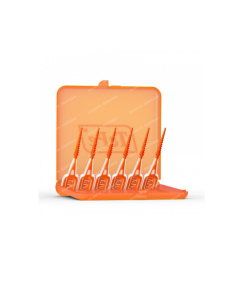 TePe Interdental Brushes (EasyPick, 36 pcs in glitter size XS/S) (silicone)
1 × $39.00
TePe Interdental Brushes (EasyPick, 36 pcs in glitter size XS/S) (silicone)
1 × $39.00 -
×
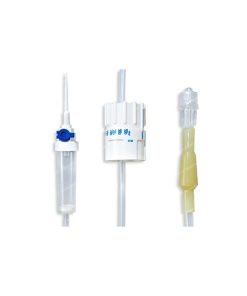 The system for intravenous infusion of infusion solutions erased. single use “Vogt Medical”
1 × $9.00
The system for intravenous infusion of infusion solutions erased. single use “Vogt Medical”
1 × $9.00 -
×
 Medical compression tights m.5002 1 class. R.3 (M) height2 black
1 × $59.00
Medical compression tights m.5002 1 class. R.3 (M) height2 black
1 × $59.00 -
×
 Pantap enteric tablets 20mg №14x2
1 × $19.00
Pantap enteric tablets 20mg №14x2
1 × $19.00 -
×
 SENI LADY super Urological pads 15 pcs
1 × $19.00
SENI LADY super Urological pads 15 pcs
1 × $19.00 -
×
 TENA Absorbent sheets (diapers) Bed Underpad Normal 60*60cm, 5 pcs
1 × $19.00
TENA Absorbent sheets (diapers) Bed Underpad Normal 60*60cm, 5 pcs
1 × $19.00 -
×
 Polpharma Enarenal, 5 mg, 20 tablets
1 × $9.00
Polpharma Enarenal, 5 mg, 20 tablets
1 × $9.00 -
×
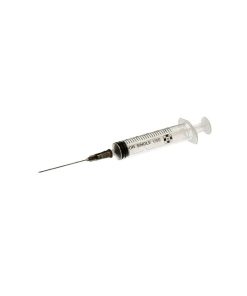 Syringe erased. one time injectable 5.0ml with 22G x 1 1/2" needle (0.7mm x 40mm)
1 × $9.00
Syringe erased. one time injectable 5.0ml with 22G x 1 1/2" needle (0.7mm x 40mm)
1 × $9.00 -
×
 SENI CONTROL Urological pads in size NORMAL 15 pcs
1 × $19.00
SENI CONTROL Urological pads in size NORMAL 15 pcs
1 × $19.00 -
×
 TePe Interdental brushes (Angle No. 3 6pcs in a blister, size 0.6mm)
1 × $39.00
TePe Interdental brushes (Angle No. 3 6pcs in a blister, size 0.6mm)
1 × $39.00 -
×
 Medical compression tights m.5002 2 class. R.4 (L) height1 black
1 × $59.00
Medical compression tights m.5002 2 class. R.4 (L) height1 black
1 × $59.00 -
×
 SENI LADY plus Urological pads 15 pcs
1 × $19.00
SENI LADY plus Urological pads 15 pcs
1 × $19.00 -
×
 Seni Lady micro Urological pads 20 pcs
1 × $9.00
Seni Lady micro Urological pads 20 pcs
1 × $9.00
Subtotal: $1,695.00
 Free worldwide shipping on orders $99+
Free worldwide shipping on orders $99+  US: temporary delays — postal services aligning new import rules,
US: temporary delays — postal services aligning new import rules,  EU: 1–2 weeks,
EU: 1–2 weeks,  Worldwide: 1–4 weeks
Worldwide: 1–4 weeks 





